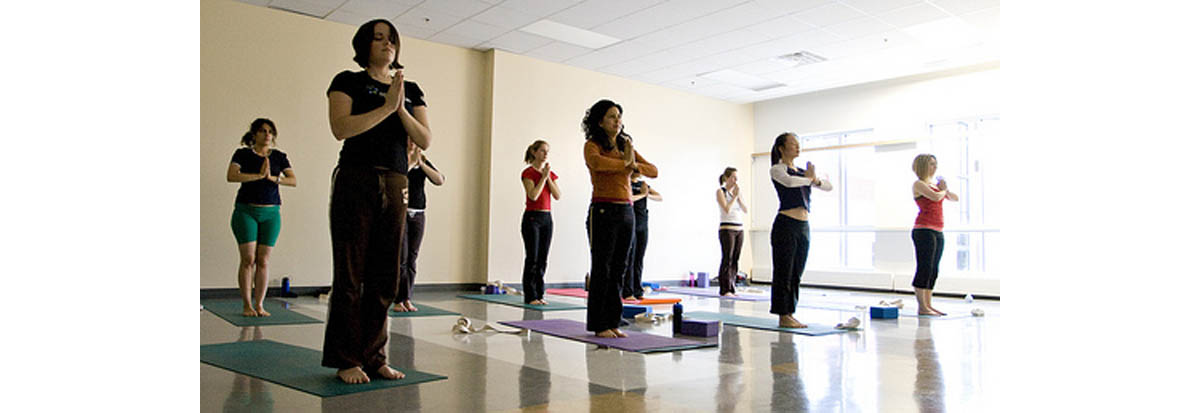
Mind Body Medicine (MBM) stresses the interactions between our thoughts and our health. Most of us have noticed that when we are feeling depressed or overwhelmed, that is often when we come down with a common cold, flu or potentially more serious health problem. The Mind Body Medicine approach often comes down to helping patients deal with stress by giving them positively and healthy outlets for their worries — such as exercise, ranging from yoga or Tai Chi to more strenuous activity like aerobics or weight lifting – and providing counseling and lifestyle alternatives that can benefit the patient.3
The approaches used in Mind Body Medicine also include prayer or meditation, behavioral, music or biofeedback therapy, massage, guided imagery, hypnosis and aromatherapy, among others. These techniques can all have a positive impact on almost any person's wellbeing, without posing a risk of any harmful side effects. This is what makes them so useful.
Are they also helpful in the case of chronic or serious health conditions, however? These approaches are currently actively being used and researched for cancer therapy4, infectious diseases in the elderly5, autism6, heart disease3,7, pain management8,9, and pediatrics10.
How can you use MBM?
Stress — whether it comes from your work or your personal life — can cause all sorts of problems. Stress is a normal response of the body to situations or events that are perceived as “dangerous” in some way. Humans evolved in a stressful world. Our stress responses evolved right along with us to protect us from dangerous people, animals, environments or any emergency situation.
Stress is related to the so-called “Fight or Flight” response. In the “Fight or Flight” response, a person is faced with some sort of dangerous situation where they have to decide which is going to be the best response — stay and fight or take off for the nearest tree to climb or cave to hide away in!? Or a third option; freeze in place and hope that the danger passes? This reaction is mostly subconscious, rather than actively made, but we all still very much make these choices, even in the modern world, where we also face plenty of danger.
Under any kind of stress, the body produces a variety of hormones and other substances that can affect our response to stress—mind body medicine assumes that we can control the production of those stress-related hormones and substances by controlling how we react to stress. Deep breathing is a good example. Have you ever been in a situation where you were scared or anxious and controlled it to at least some extent by slowing down your breathing? That is a form of stress relief practiced in MBM.
The important things to emphasize are reducing the amount of stress in your life and taking a positive attitude. Reducing stress can be a challenge for many, but it may just mean taking an hour or so every day to relax. It may mean taking a class in Tai Chi or yoga or taking a few long walks. It may mean some therapy to channel or deal with anger or grief. It depends on what the sources of stress are for you.
What Do You Mean by a Positive Outlook?
A positive outlook is not the same thing as looking at life through rose-colored glasses or going through life singing “it’s all good!” A positive outlook can mean simply finding fun, humor or enjoyment in everyday activities, even when you are feeling sick, depressed or perhaps grieving. It means that you try to find the positive as you go through whatever process you are going through. Maybe you have just lost someone very near and dear to you—having a positive outlook may mean remembering all the good times with that person. Maybe you can emphasize all the good things that person did in their lives and make an active choice to do similar good things for others in your life. A positive outlook can be finding or re-finding the relationships in your life that are important to you.

Bad things happen to good people—we see that all the time all around us. Bad things happen to all of us—but maybe just maybe you can pull some good out of it. Say you have just gotten out of a bad relationship—and maybe this is the umpteenth bad relationship you have had—this may be a good time to figure out the reasons WHY you have put yourself in that position. This may be a good time to figure out what you have learned—and how to best implement those “lessons”.
When you or someone you know is sick—people talk about “cheering” you up. This is perhaps the instinct we all have for mind-body medicine. We know instinctively that if we go visit someone who is sick with a book, flowers or a card that can cheer them up, we are helping them recover, at least in some small way. If we are the one who is sick, we appreciate the fact that someone cares enough about us to visit—and buy those flowers, that card or that book.
Now, no one is saying it is easy to have a positive outlook—certainly not all the time! In fact, it can be very hard! The fact is that we all die, but it is up to each one of us to live as we want to live—and if you can do that with a few more smiles or a bit more laughter, so much the better!
- 1. http://www.umm.edu/altmed/articles/mind-body-000355.htm (Accessed 8/11)
- 2. http://nccam.nih.gov/health/backgrounds/mindbody.htm#intro(Accessed 8/11)
- 3. Frishman WH, Beravol P, Carosella C., Alternative and complementary medicine for preventing and treating cardiovascular disease Dis Mon - 01-MAR-2009, 55(3): 121-92.
- 4. Gordon JS., Mind-body medicine and cancer. Hematol Oncol Clin North Am - 01-AUG-2008, 22(4): 683-708, ix.
- 5. Heffner KL., Neuroendocrine effects of stress on immunity in the elderly: implications for inflammatory disease. Immunol Allergy Clin North Am - 01-FEB-2011, 31(1): 95-108.
- 6. . Bertoglio K, Hendren RL., New developments in autism. Psychiatr Clin North Am - 01-MAR-2009, 32(1): 1-14.
- 7. Pratt C., Alternative prevention and treatment of cardiovascular disease, part 2. Prim Care - 01-JUN-2010, 37(2): 339-66
- 8. Teets RY., Integrative medicine approach to chronic pain. Prim Care - 01-JUN-2010, 37(2): 407-21.
- 9. Morone NE, Greco CM., Mind-body interventions for chronic pain in older adults: a structured review. Pain Med - 01-MAY-2007, 8(4): 359-75
- 10. Rosen LD, Breuner CC., Primary care from infancy to adolescence. Pediatr Clin North Am - 01-DEC-2007, 54(6): 837-58, ix

